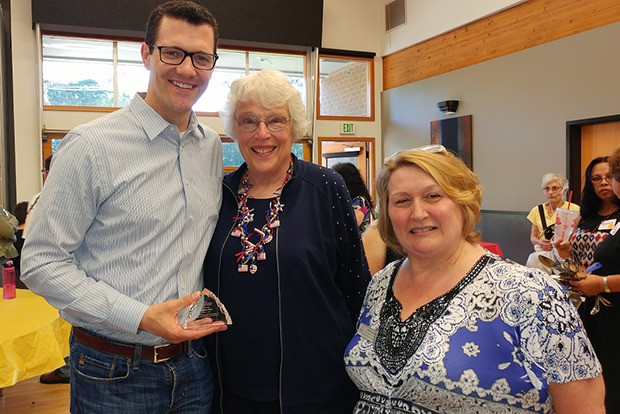For the Reporter
Sen. Joe Fain, R-Auburn, was recognized for his work in the Legislature supporting people with developmental disabilities at a recent gathering of parents and advocates in Renton.
The Arc of King County’s Parent and Family Coalition, which mobilizes family members to advocate the Legislature on behalf of people with intellectual and developmental disabilities and their families, hosted the event.
“Sen. Fain is a leading advocate in Olympia for individuals with developmental disabilities,” said Stacy Gillett, executive director of The Arc of King County. “We are so grateful he has made our legislative issues a priority for his caucus. Everyone should have a life of their choosing, and Sen. Fain is helping us make that a reality.”
Fain co-sponsored the ABLE Act, a bill that creates A Better Life savings program for people with disabilities, and the Parent to Parent bill, which helps fund outreach, education and support for parents of children with disabilities.
Kent resident Stacia Irons, who works on behalf of her daughter to improve options and support for people with developmental disabilities, presented the award to Fain.
“Living in the community is a basic human right, and for decades The Arc has helped self-advocates and their families create community-based opportunities so individuals with intellectual and developmental disabilities can achieve their goals. We thank Sen. Fain for his leadership,” Gillett said.
While 2016 was a short session with only a chance to update the existing state budget, the Legislature increased funding and improved policies for people with developmental disabilities. Items addressed ranged from new protections for people at high-risk of abuse to $1.75 million for paraeducator training. Paraeducators provide more than 50 percent of the classroom education to students with special needs.


